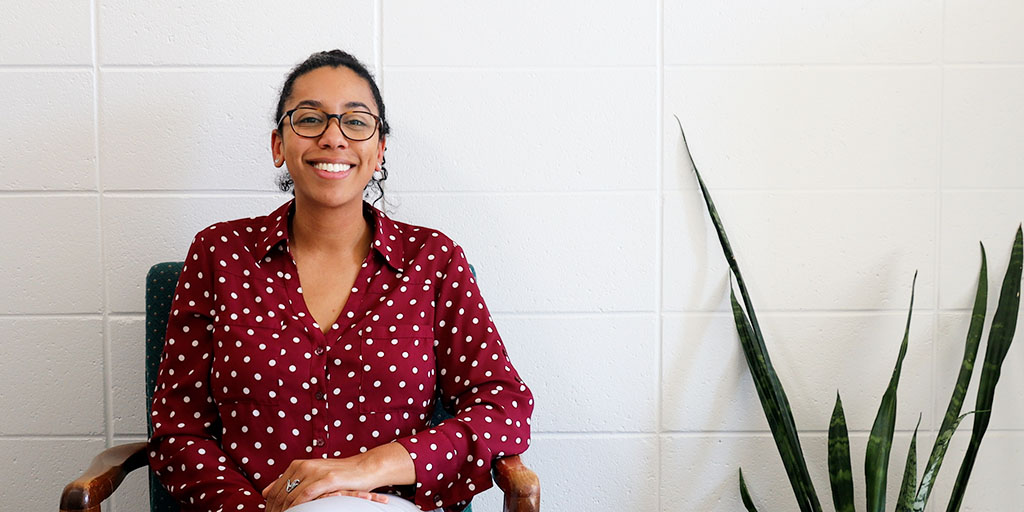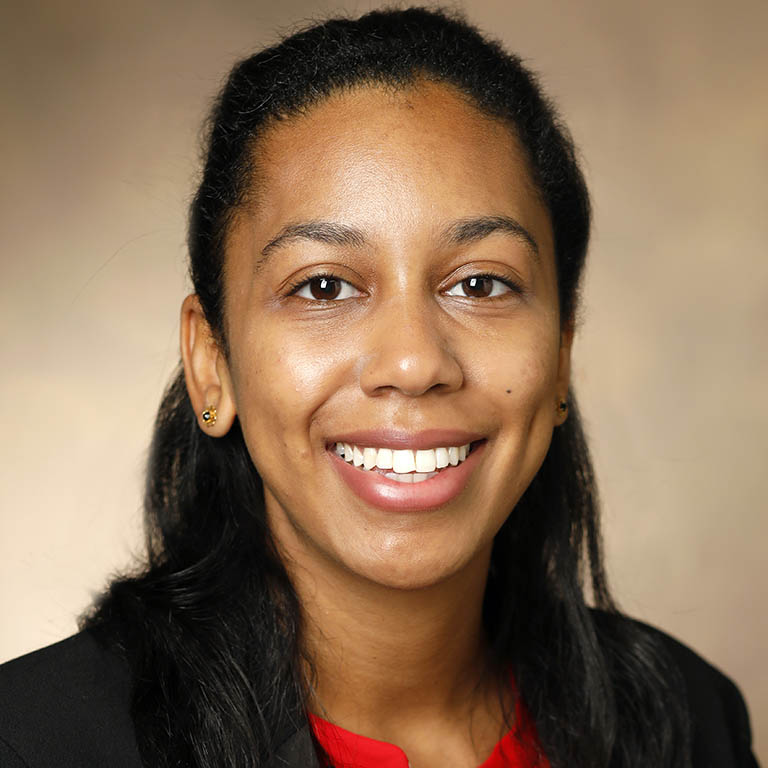“Sometimes we wish we could do everything at once,” says newly arrived PBS assistant professor and alumna Alexandra Moussa-Tooks (Ph.D. ‘21).
She is explaining her boundless enthusiasm for all aspects of faculty life in PBS and the Clinical Science Program – and her dismay that she must wait for a future date to take up some of them: From research, writing, teaching, and conducting a clinical workshop, all of which she is currently doing, to the practice of therapy, and yes, even taking on administrative roles, for which she will have to wait.
Not to mention her active engagement in addressing gender and racial biases as they exist both broadly in the field and in clinical practices and treatments. A recent publication on ways to improve retention of underrepresented minorities in science and medicine and an upcoming virtual workshop on integrating experiences of systemic racism into a clinician’s understanding of psychosis in Black clients take on these issues point blank.
Moussa-Tooks first arrived at IU in 2015 as a graduate student in the lab of Professor Bill Hetrick, completing a dual Ph.D. in psychology and neuroscience. After serving as a postdoctoral fellow in the Vanderbilt University Medical Center Department of Psychiatry and Behavioral Sciences, she joined the Vanderbilt faculty as an assistant professor of Psychiatry and Behavioral Sciences. This past fall she returned to Bloomington as a tenure-track faculty member.
Understanding psychosis from the ground up
Moussa-Tooks’ research explores the continuum between motor symptoms of psychosis and “higher order” symptoms like cognitive dysfunction. In fact, she sees those motor symptoms, which include disturbances in gait or posture and the timing and coordination of movements, as the potential source of important clues to the more elusive disturbances of complex cognitive processes, and even more complex symptoms like paranoid delusions and hallucinations.
As she describes it, “The primary work in our lab is looking at these motor symptoms in psychotic disorders and trying to pinpoint where the deficit comes from. Is it a problem with their motor mechanical function, with timing or the ability to generate a model of the world and understand how to move around in it?”
She leans toward the notion “that this deficit is in generating a model of the world and being unable to update it.” And this ability to generate and update a model of the world applies as much to cognitive activities like making decisions or forming beliefs as it does to physical movement like reaching for a cup of coffee.




 The College of Arts
The College of Arts